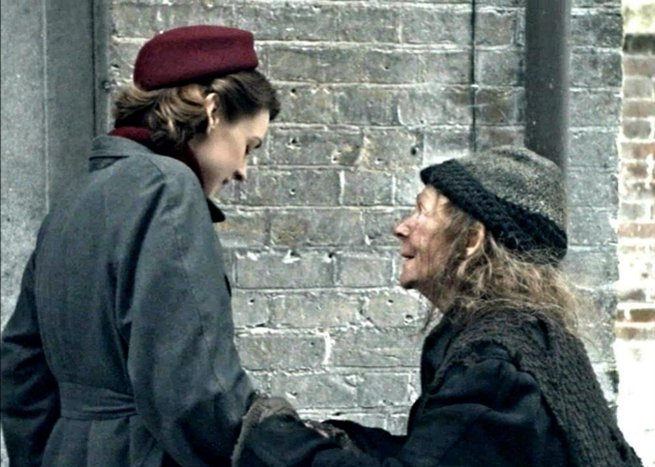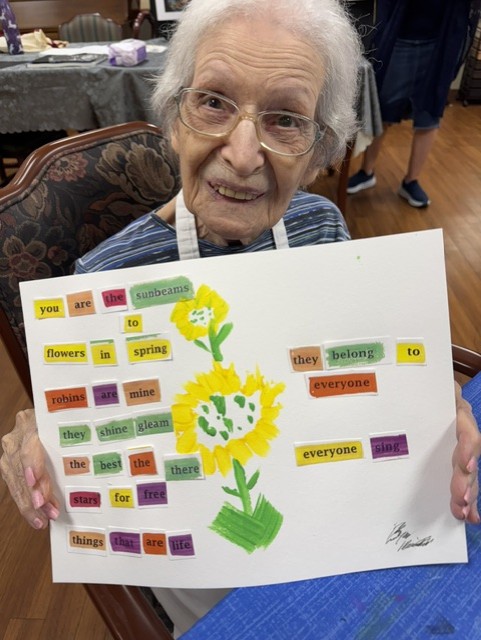I love watching the British television series “Call the Midwife” which is currently in its 13th season. The series is based on Jennifer Worth’s memoirs of her nursing experiences in the late 1950s. Along with other nurses, she worked among the poor of London’s East End, making home visits to deliver babies as well as care for those who were ill or injured. It’s a difficult and exhausting job, and one that I can relate to, as I too worked as a homecare nurse for the Visiting Nurse Association (VNA) for many years before I became a parish nurse. Although, I didn’t deliver babies, I did care for many ill patients in their homes. And, like Jennifer Worth, I often worked with the desperately poor.
But that is only part of the reason why I am transfixed by episodes of “Call The Midwife”. The other part of the story is the other nurses in the series as they daily go about their job of nursing their patients. I am frequently amazed as I sit in front of the television and watch these nurses work. Of course, they exhibit traits such as patience and caring that we often identify in nurses. But they also exhibit a pragmatism and wisdom in situations that are complex, difficult and painful.
Rivers of Grace Flowing Down
And there is always so much grace given. Rivers and rivers of grace cascade down as they work amidst the filth and the bugs, the cranky and the cheerful patients, and the grateful and ungrateful patients too.
You might think that this doesn’t reflect reality. These actors who portray nurses are just that; actors. However, the stories themselves come directly from Jennifer Worth’s memoirs, and I am here to tell you that as far as how the nurses are portrayed, it couldn’t be more real for throughout my career as a homecare and parish nurse, I have worked with nurses who have shown as much compassion, grit and grace as the nurses depicted in “Call the Midwife.”
Recently, when my sister-in-law Ann came to visit, my husband and I introduced her to this special TV show. We started at the very beginning of the series and soon ended up watching the 2012 ‘Call The Midwife’ Christmas Special. This episode revolves around the character of Mrs. Jenkins, a woman who is filthy, wears rags and lives in squalor.
A Broken Life
We soon find out that Mrs. Jenkins and her six children were workhouse inmates. Yes, residents of the workhouses were referred to as “inmates”. Incredibly, workhouses in England weren’t completely abolished until 1948. Equally astounding, the living conditions in the workhouses had not changed much since the time of Dickens. In this story, all six of Mrs. Jenkins children died in the workhouse. It was abundantly clear to the nurses that Mrs. Jenkins was broken in all the ways a human can be broken.
In one scene, after the nurses had slowly gained Mrs. Jenkin’s trust, she allows the nurses to bathe her, and it is quickly found that her boots won’t come off because they have adhered to the skin of her feet. Using Vaseline, the shoes are finally removed revealing feet that are covered in open sores and toenails so long they have begun to curl. It is a pitiable and grotesque sight.
Mrs. Jenkins is then led to the bath, and the viewer sees the nurses begin to slowly and gently remove her robe revealing her thin and frail back. It is at this point that the hauntingly beautiful, “O Come O Come Emmanuel” begins to play, and the nurses very tenderly and with great care begin to bathe Mrs. Jenkins whose broken body and broken life are treated with the care you would give to something rare and priceless.
We Are All Vulnerable and Fragile
When all is said and done, we are all like Mrs. Jenkins. We are all vulnerable and fragile as we are buffeted by wind and rain, by loneliness, and by life’s ups and downs. Even when we are unlovable, are dirty and smell or are irritating and difficult, we all need to be treated and to treat each other as though we are like a newborn baby.
I can only imagine that, like parents everywhere, Mary and Joseph cared for their infant son with the tenderness reserved for something rare and priceless; counting each finger and toe then cleaning him with the little water they had with the gentlest of touches. And finally, with great care, wrapping the infant Jesus with bands of cloth and laying him in a manger.
In a world threatened with increasing temperatures and that pulses with the pain and rage of wars and schisms of all kinds, may we treat one another with great gentleness and care as though each person were a rare and priceless porcelain vase or perhaps, like the newborn Messiah. O come, O come Emmanuel!
For Reflection (either individually or with a group)
Read the blog. Read it a second time, maybe reading it aloud or asking someone else to read it aloud so you can hear it with different intonation and emphases. Take these questions for a walk in the woods or in your neighborhood, for a swim or a run or for a hot soak in the tub. Invite the questions to join you for tea or coffee.
- Do you know of a secular book, television show, or movie where Grace is an important part of the story? How is Grace represented?
- Have you ever been treated as if you are something rare and priceless? What was the situation and how did it feel?
- In what ways are you longing for Emmanuel to come to you today?
Download a pdf including the Reflection Questions to share and discuss with friends, family, or members of your faith community small group.
View all articles by:






















